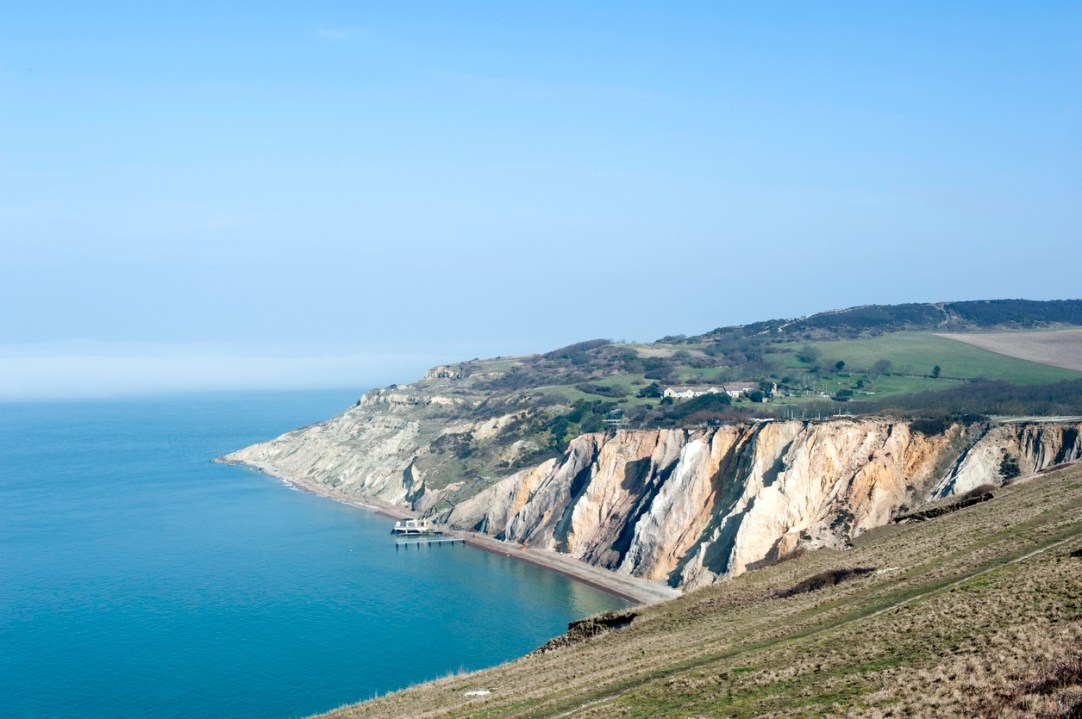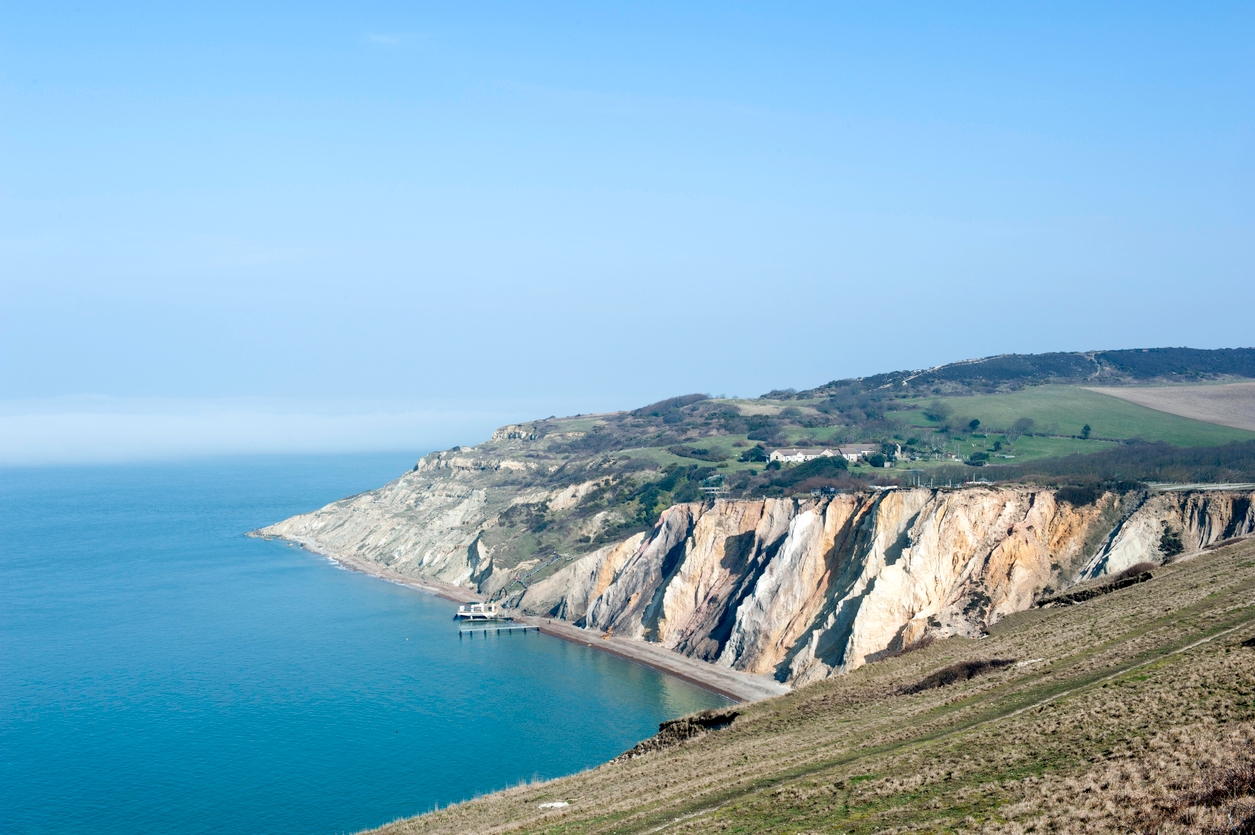Technology can save the world — from South Korea to Singapore to, um, the Isle of Wight. Oh yes. Britain is catching up at super-fibre-optic-lightning speed with the superpowers of tech in its fight against Covid-19. We’ve developed a snazzy ‘track and trace’ app, that’s already been trialled at an RAF base in Yorkshire, and the government now intends to roll it out in a pilot scheme on the lovely Isle of Wight and the Scottish Isles, Health Secretary Matt Hancock will announce on Monday. Sod the threats to privacy and liberty — let’s get people-monitoring done!
One small problem — the internet on the Isle of Wight doesn’t really work. Mobile telephone reception is notoriously rubbish; so too is broadband. It’s a common gripe down here. I wonder if the government has even thought about that.
The island is thought to be an excellent control group for the tracing pilot because it is ‘self-contained’. Well, I’m currently sat in my mother-in-law’s house in Seaview, on the north coast of the island, looking out at Portsmouth, and I do feel pretty self-contained. There is almost no bloody phone reception. If I stay very still at the top of the building, I can sometimes make a call. Fraser, the Spectator editor, just rang my mobile to discuss something. He kept cutting out and I had to call him back on a landline (remember those?).
The WiFi here is frustrating to put it mildly. My mother-in-law, poor thing, has spent a small fortune trying to make it work. After several failures, she finally switched to a premium BT OpenReach service and that just about functions. Still, it went down early on during lockdown, and it took us 28 days to get an engineer to come, including three appointments where he just failed to show up. I had to piggyback off a kind neighbour’s WiFi just to be able to work.
I don’t tell you all this just to gripe, satisfying though that is. I realise that track-and-trace systems won’t necessarily need good domestic broadband. But I’m not sure the government, in its infinite wisdom, has realised quite how bad the tech infrastructure is here. Bob Seely, the island’s Conservative MP, is a good man and a passionate advocate of its interests. In a Telegraph piece mooting the idea of a track-and-trace pilot on the island, he wrote:
‘Much of the original work in wireless communications was conducted by Guglielmo Marconi overlooking the multi-coloured sands of Alum Bay. Julia Margaret Cameron pioneered experimental Victorian photography in the windswept West Wight. The hovercraft was built here, and the Blue Streak rockets tested above the chalky cliffs of the Needles. Today, many of the elegant and energy-saving curved wing-tips you see on modern jets are made in East Cowes. Our Island is an place of invention as well as of natural beauty and art.’
Well, yes, and good for you for trying Bob. But I’m afraid the island is famous for being stuck in the 80s – it’s part of its great charm. (In internet terms, it’s probably more fair to say the mid-00s.) The islanders, too, have an impressively stubborn attitude to being spied upon. The Labour Island Chair Julian Critchley has said: ‘We would very strongly oppose the ending of lockdown on the island before the ending of the national lockdown. Islanders are not guinea pigs.’
I should admit that I am one of the dreaded ‘DFL’ (Down From London) visitors, whom most islanders despise – but the few people I have spoken to down here would be more than happy to open up the island ahead of the rest. The local economy depends on it. But no sane person likes the idea of being tracked and traced, and islanders naturally do not like being ‘connected’. It’s an island, for goodness sake: people come and live here to escape.
Seaview may be a particularly dead zone for the internet – but it is not atypical. According to an Ofcom report two years, more than half of Island homes and businesses still did not have full 4G coverage and I can’t see much evidence of improvement. If you look on Trip Advisor, which I just did (it took a while), you can see long threads complaining about connectivity here. The word ‘patchy’ comes up over and over. There are more ‘not-spots’ than hotspots. It’s no South Korea, where the track-and-trace scheme was successfully deployed, which ranks top of the world for its 4G coverage, with 97.5 per cent ‘penetration’.
A friend here gave me a useful tip a few summers ago. If you switch your phone to 3G, you can make a phone call from most places on the island. It’s still not perfect, but it helps. Is 3G good enough for tracking and tracing? Maybe it is. The government says the app uses ‘low-energy bluetooth’, which sounds very swish, to connect between devices. But it also presumably needs reliable coverage across the island for the government to connect to the app – if indeed people can download it in the first place
The locals here don’t want to be digitally penetrated, and good for them. Given that, however, is the Isle of Wight really the place to roll out a crucial scheme that could, we are told, save tens of thousands of lives? Has Matt Hancock, the great optimist, considered this possibly rather large flaw in his brilliant plan?








Comments